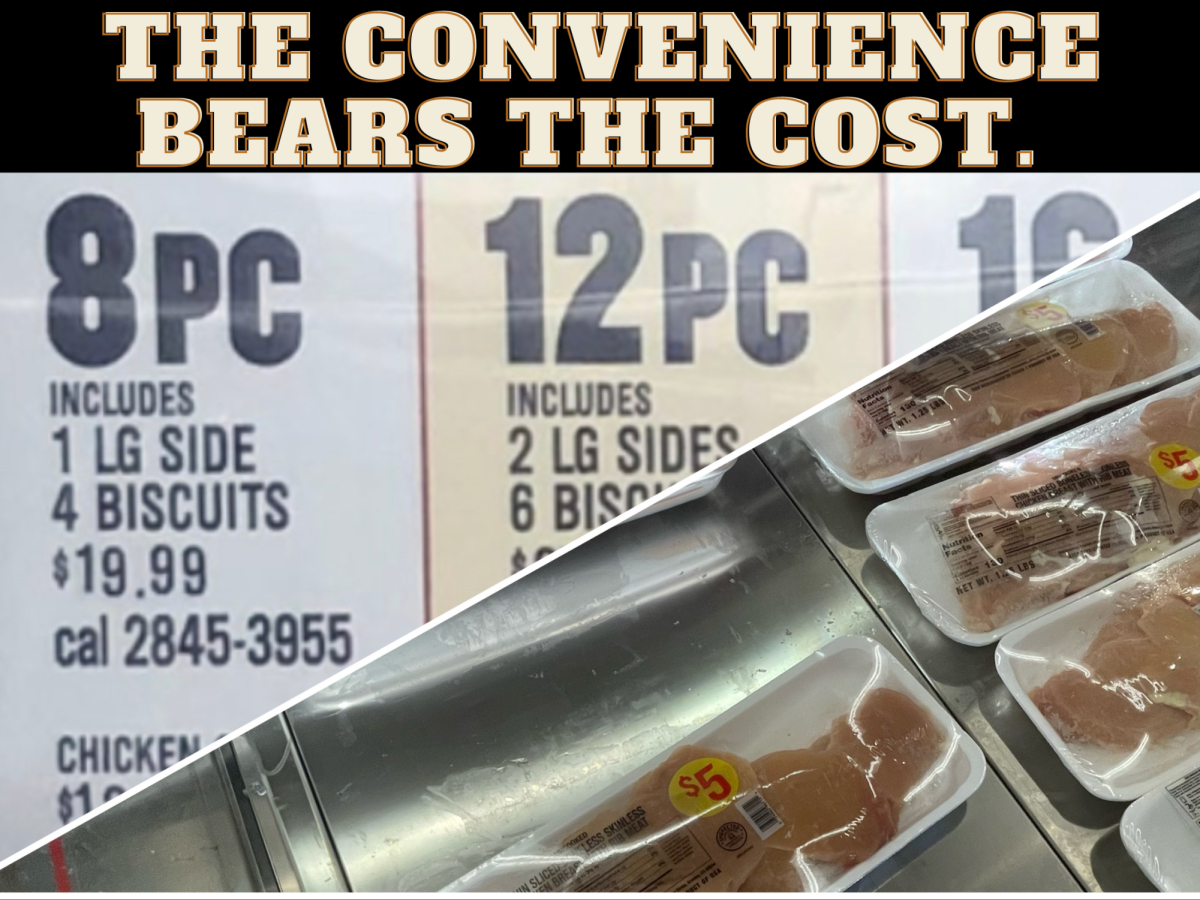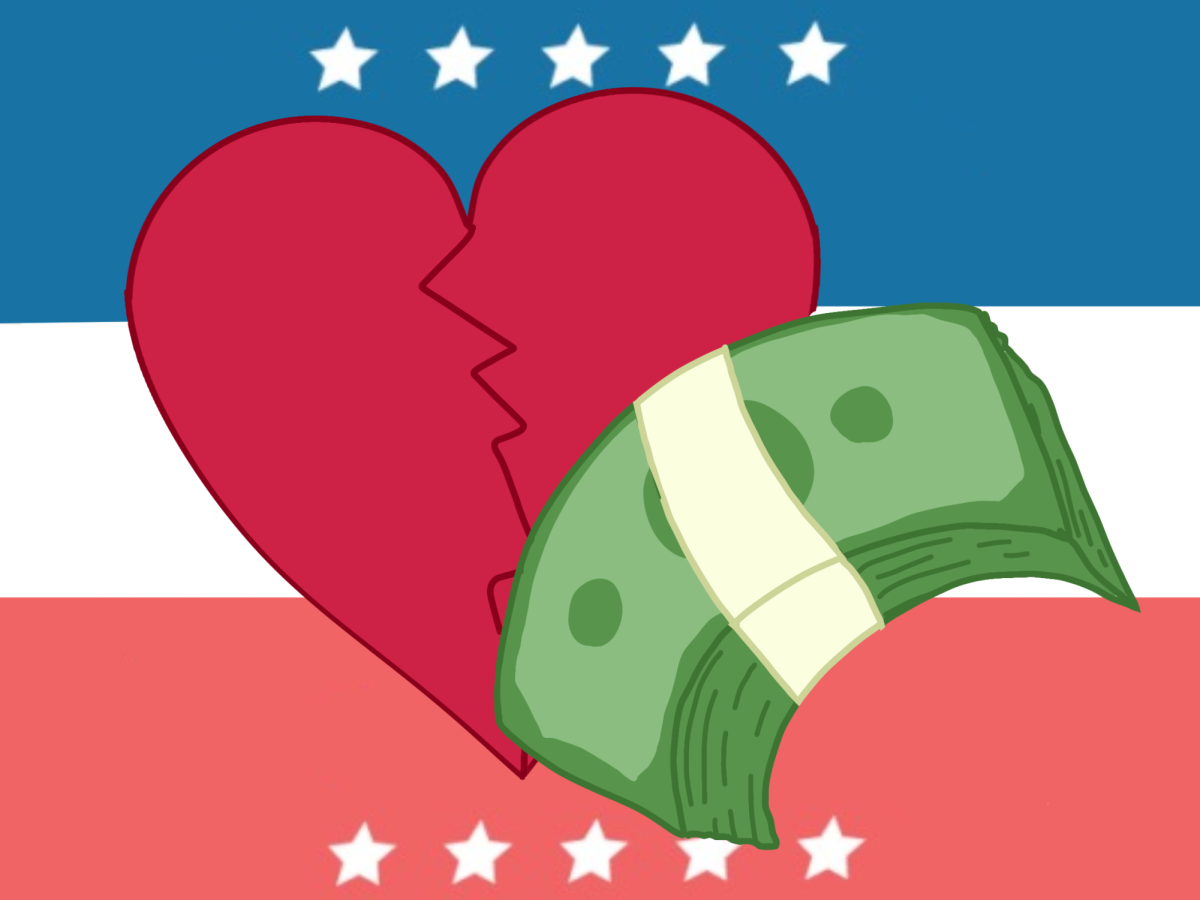In the eyes of people outside the United States, Americans come across as unhealthy and overweight. As a defense, Americans tend to blame their health on the barriers to obtaining healthier food options. Criticizing cost and convenience remains an insufficient excuse due to people in other countries facing the same costs for a healthy diet, yet not suffering the same problems of obesity and poor dietary habits that America faces.
Americans, especially those in the middle to low economic classes, believe they can not access healthier options due to the items’ costs. This explains why they choose the cost-effective option which normally becomes the unhealthy choice. Nonetheless, cost-efficient food options exist.
The majority of the blame always falls on fast food places such as McDonalds or BurgerKing because their convenient food does not pose high costs. Americans believe fast food restaurants’ concept of easy pickup, timely drive-through and time-efficient service provides a cheap and convenient meal. With those factors, people resort to fast food instead of buying ingredients at the grocery store where they must find the ingredients themselves, walk up and down isles and wait in line for check out. Buying meals they would eat in one sitting instead of buying ingredients they can eat over time for roughly the same cost remains a waste of money. Therefore, when customers label fast food or eating out as the “cheaper” option, they err. When people buy a one-time meal, they will spend roughly the same amount that they would send if they bought groceries which sustain them for several days, not several hours. When evaluating the marginal utility and benefit—the value of dollars spent with the amount of food received rather than solely evaluating costs— buying food in bulk or ingredients remains the cheaper option. Even if buying in bulk at places such as Sam’s Club or Costco seems expensive at the register, Americans will decrease their spending at other grocery stores and, of course, fast food places in the long run. Consumers should save money buying ingredients to cook at home instead of spending money to dine in or pick up food from the drive-through.
Convenience recurs as one of the main reasons people opt to eat at restaurants and fast food places or eat unhealthy foods. Meal prepping—making a large proportion of a meal, typically a vegetable, meat and a side, to eat over multiple days— combats cost and convenience. If people do not want to eat the same food every day, they can make sizable portions of different foods such as salads, soups or noodles. Stores sell pre-packaged versions of food so people can boil or microwave the food for a quick meal. Furthermore, people can try methods such as decreasing the redundancy of eating the same food by changing dressings, toppings or seasonings “When I was young my mom made a huge pot of spaghetti, and my family would eat it for weeks. This is a running joke among Black people since most of us grew up with the same experience. Since even though we were poor, my mom wanted to feed us as much as possible and as healthy as possible,” freshman Melanie Hernandez said.
When shopping, healthier options may seem more expensive, but cheaper and healthier alternatives to nutrient-dense food are typically displayed next to the less healthier option—one notable example: potato chips. Kettle and baked chips contain vitamins and lack dyes and excessive oils used in regular potato chips such as Lays. Additionally, kettle and baked chips cost less than regular chips. All of the chips appear in the same section of stores, with the baked or kettle versions of different flavors placed next to their unhealthier counterparts. This concept proves that both healthy and unhealthy options hold the same accessibility to the public, leaving the choice up to the American consumer.
“In my middle school, the only things they served at lunch and in vending machines were all low calories, no sugar, less sodium, etc. Which we would complain about but at the end of the day we kept on eating them regardless. It was not like it tasted completely different,” sophomore Brynn Christy said.
Accountability seems necessary to address the health crisis for a possible chance of a healthier outcome. The problems come about when people make excuses regarding the reasons they cannot eat healthily. Claiming ignorance or blaming cost and convenience remains a non-excusable component of the health crisis.










